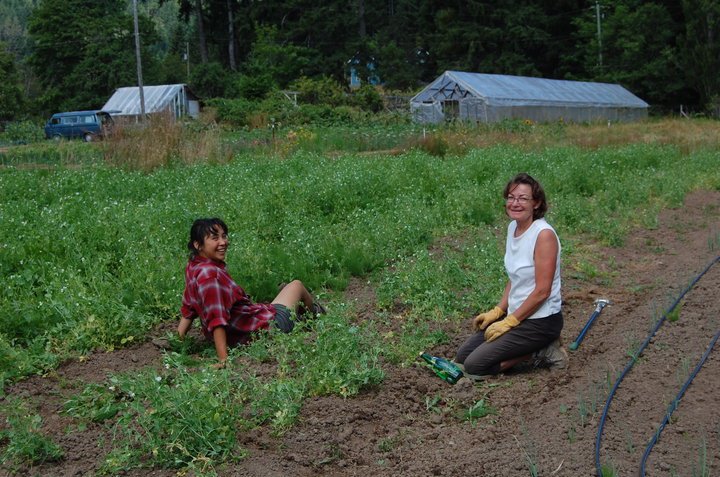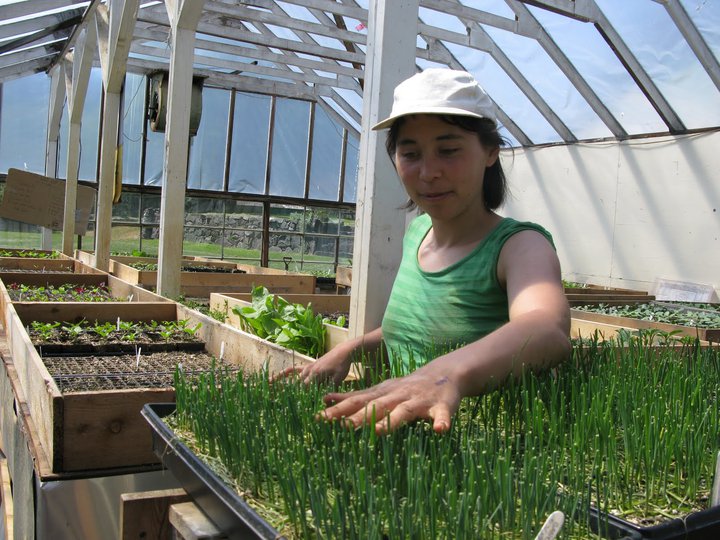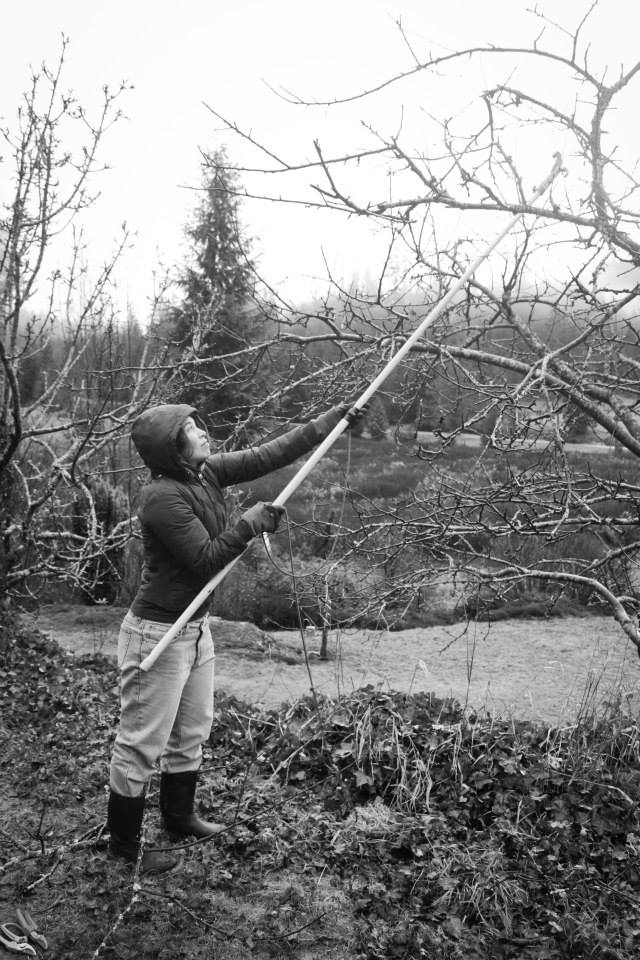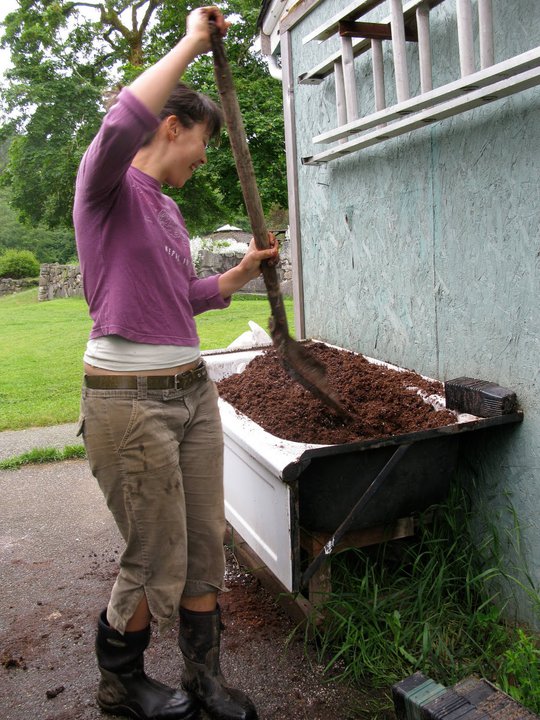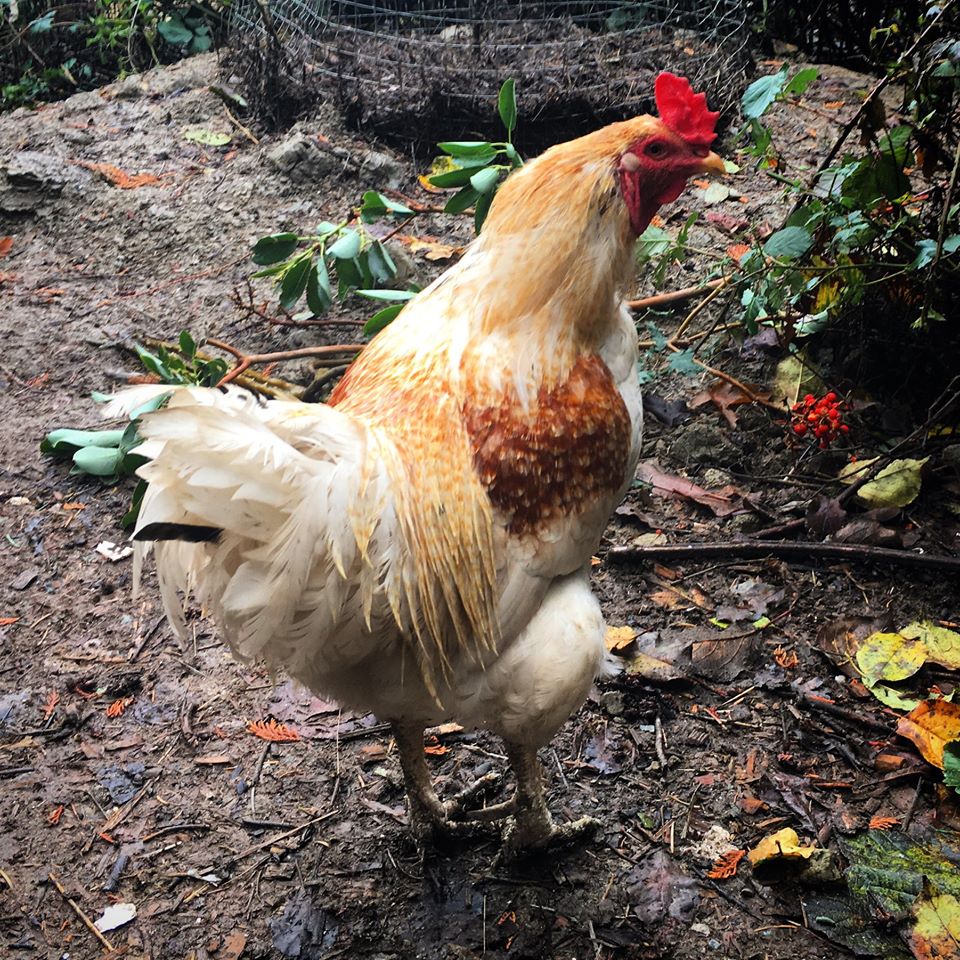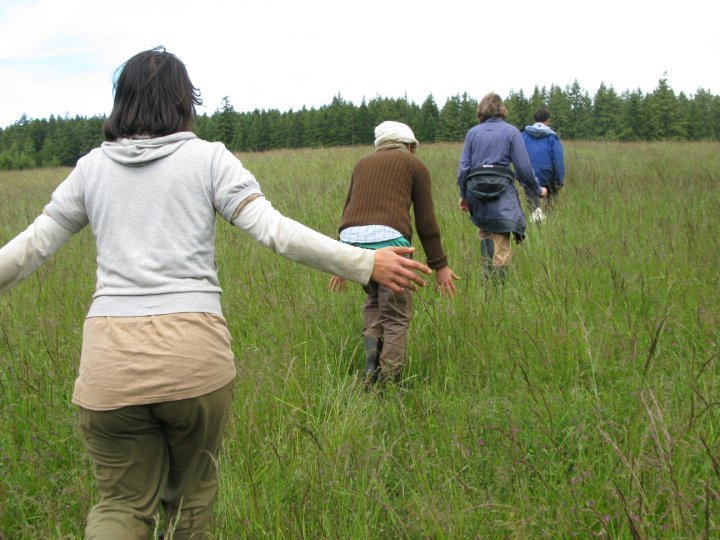Food Security Reporting by Hazel Appaqaq
20 min read
Every so often you get wind of the latest predicament besetting our food supply, in the form of a shock-worthy story, or dour update, as served up by the news stream that reaches your personal antennae. The past few Discovery reports have centred around the havoc that midwinter invariably wreaks on so many links in the chain. These disruptions can include any combo of: migrant workers’ unwillingness to brave miserable conditions for shorter work days (at measly hourly rates to begin with), field crops slowing their growth to a crawl, getting trashed by damaging cold or being taken out altogether, and delivery trucks held up from hours to days at key route passes rendered impassable. However, most of us are not of that intrepid breed of human, fondly described as ‘outstanding in their field.’ To the average grocery shopper, the occasional news flash is the sole provider of intel on the distant enablers of our dearly held appetites. These brief broadcasts trickle into our field of awareness, where they might spark a few neurons, then as the pressing matters of mundane life jostle for attention, they quietly trickle out again. This is possibly the most human thing in the world, to feel the constriction of the daily grind pushing our view of the bigger picture into the recesses of the mind.
Zoom in to the local producers viewpoint, and note that the small scale equivalent to all of these problems confronts Cortesian farmers too. The Co-op’s larger producers do an impressive job of charting the island’s consumption of local fare, but in the wake of an insect infestation, disease outbreak, or a streak of intractable weather, the lost value falls on their shoulders. Now, it’s entirely possible for a variety of crops to keep year-round in our balmy rainforest conditions, but who among us wants to keep toiling in the muck and torrential rain all winter long? All of the Co-op’s primaries need a break! Yet it seems that these realities of the farmers lot are disproportionately magnified, so much that the casualty of the media’s biased recounting is our desire to grow food for ourselves. A consistent overemphasis on gloom has the effect of, one could say, nipping it in the bud. There are reams of resources within the layperson’s reach about meeting the physical and practical challenges to gardening, but publications that address the mental impediments to the lifestyle are oddly lacking in ranks. At this seasonal turning point when the light is allegedly on its way back, yet time itself can seem to have ground to a halt on the inside of a raincloud, it is to this motivational side of growing food for ourselves that I’d like to speak.
Lettuce begin the discussion with a story.
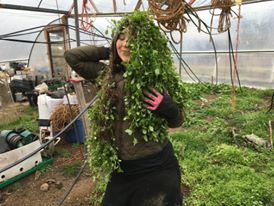
I first found my ‘farm legs’ on a small-scale acreage in Southern Ontario: a gorgeous property surrounded by deciduous forest, prolifically cultivated for a mixed vegetable, CSA/market operation. For a young person two years out of high school, leery of the post-secondary path, and with a smoldering need of a kind of testing that the classroom couldn’t offer, the immersive education of a full-season, organic farming internship was both a rewarding achievement, and a solid beginning. Of course, when I committed to the journey and bought my bus ticket, I had no idea just how full of an experience I’d signed up for…
There were two other interns also on their first foray into growing, and together we learned the ropes of the life behind the farm enterprise. We started seedlings, prepped beds, built composts, mastered the knack of quick transplanting, undertook methods for season extension, harvested twice a week for the community-supported box program, and eventually achieved a quasi-industrial weeding technique. On top of this, Tom (the farmer) was an avid practitioner and teacher of Biodynamics, a system of farming that includes a whole assemblage of practices additional to organics. Developed by Rudolph Steiner, the founding father of the Waldorf school system, Biodynamics introduces concepts like working in harmony with the moon phases, employing homeopathics in composting, harnessing the power of intention, and perceiving the land in terms of the flow of energy, stewarded by ‘nature spirits.’ The amount of weekly work was 50 hours. Was it a steep learning curve? You bet. But we had all chosen his farm over the many others in the region because of this intriguingly mysterious system, and because where all the others advertised 3-5 years under their belts, Tom had been at it for 15.
However, in this world of farm work exchanges, job postings are commonly slanted in idyllic representation, and only the honest ones will mention their scenes unique frictions. One such teensy, undisclosed detail about Tom, was that he was an ex-drill sergeant in the American army! Shortly after the week-long trial period, this background began to surface in the way we would hear about our shortcomings. Doing something slowly or inefficiently would produce a growled reprimand. Making a mistake, like not transplanting in straight enough rows, or taking from the wrong compost pile, would often lead to us being dressed down by a sort of acrimonious foghorn! While we were naive to the existence of things like compassionate communication and workers rights, the fact still evades me now, as it did then, how someone so keen on Steinerian values could overlook the inherent value of human relationships. Whatever the reason for the disconnect, a few months of this treatment showed that talking back in our defence never induced an improvement.
Why did we put up with it? I’m glad you asked. The lesser reasons were that we didn’t know any better; we were unwise to the ways of standing up for ourselves in the face of unfairness. Also for myself, a dogged stubbornness and an attachment to not being a quitter drove me to keep showing up to Tom’s stern countenance. But primary to these, I feel that as much as our dignity suffered erosion from his abrasive tones, something more substantial was being nurtured and remedied. A deeply burrowed need which had propelled all three of us to seek out and choose this adventure, at once edifying and intimate, was finally being attended to. The ample years’-worth of knowledge that Tom gradually imparted to us, paired with the accomplishment of the daily tasks in our three-pronged squad, allowed the information to sink down to a personal level… and an uplifting, effervescent joy to percolate back up! He was our gruff guide in the ways of fostering the life that fed us in return, a process which unearthed a new embodiment of nourishment, satisfaction and gratitude. Our struggle paralleled the maturation of the tiny plants that we handled: we too were being hardened and prepared for a worthy cause – learning how a society can feed itself through systems that complement the living world’s connections, as opposed to subsisting at the cost of them.
As the season wound down through the Ontarian fall, a deeper peace of mind wasn’t the only perpetuator of our daily slog. The three of us agreed that our interns pod was also a source of staying power via a vital sense of humour, from the way that we leaned on each other and made light of the frequent emotional pressure. For example, as a trio of Harry Potter fans, we took secret satisfaction in calling Tom ‘Voldemort’ behind his back! Or, our way of diffusing the stress following a singeing explosion was to rate the force of it on the Tomometer! As in, “I’d call that a 4.5 on the Tomometer,” or “That was at least a 5.9.” Or just laughing together as we schlepped through the ridiculous tasks that were sometimes thrown at us, like weeding in a downpour until our rain gear suctioned to our shivering frames. Struggling to transplant scallion starts into such ‘clay-y’ soil structure that it was basically like picking a clod up, putting the tiny plant in place, and putting the clod back. Making fun of Tom’s aggressive suggestion to “surprise him with our competence,” by acting like prehistoric cave people in his absence… And other jokes and clowning of the like.
In this day and age it strikes me as a critical factor to maintain a similarly buoyant attitude around ones reasons for gardening. One critique of the producers biz is its being host to any number of blinkered ways of seeing. From some overly assertive authors touting their way as ‘the proper way to do it,’ to the idea that a ‘serious’ farmer must endure a 50 hour work week, to the more common assumption that it entails back-breaking work – any rigid belief pertaining to how it can or should be done will only limit a fledgeling gardener’s success. The darkest point in my memory of that time of expedited growth, was when I thought that the state of feeling drained by being on edge for the majority of the ten-hour days, was what farming necessarily involved. And since I couldn’t keep it up, surmising that I must not have what it takes.
I couldn’t have been more wrong. Throughout the variety of work exchanges I went on to explore, from my second full season internship on Salt Spring, through woofing along Vancouver Island all the way to Bluejay Lake, one thing has sidled into the banks of what I know. And that is that anyone can do it. Anyone can farm! So extended, personal narratives aside, here are a few pearls that I’ve gathered along my ambling trails:
- It doesn’t have to be arduous, time consuming, or complex. In fact, there are as many approaches to gardening as there are people doing it. Simply deciding to start may well lead you to develop a style uniquely your own.
- That being said, sometimes the initial steps can seem like hurdles of Olympian dimensions. What I would tell myself when our intern triad would be set loose on an entire field’s worth of weeds, is start with what’s right in front of you. At the time I was thinking in literal terms, but the same sentiment can translate to a general sense. Whether you’re staring at a Salal-covered slope, or assessing the logistics of the entire operation, focusing on the muchness of the task can take the wind out of anyone’s sails. Paring down your goals into increments that you can handle today, or for the next hour or two, or into any other degree of a micro window will either fortify your confidence in your ability to take on more, or inform you of how to adjust the scope of the next project.
- Countless were the times when Tom would hammer on to us about “the power of observation…” Though this felt more like another chiding than a teaching, the trueness of his words eventually stuck: it helps to stay open-minded about what you think you know. Many a seasoned grower will corroborate that you can do it your whole life and still be learning new things fifty years down the road. This is a pro! How many careers can claim to offer the same boundless fodder for inquiry and experimentation?
- If you can tolerate moving piles of ingredients from one place to another, you’re halfway to being a farmer! No really, this seems like the bulk of the business in my experience. So if you love trundling things around, you may want to seriously consider this way of life as your next calling, and invest now in your own pitchfork and wheelbarrow!
- Most of us aren’t equipped to handle all the various pieces to building and maintaining a veggie plot from scratch. If a larger proportion of islanders chose to divert a minimal amount of time and resources away from money earning, towards any realm of collaborative food production, be it donating land, lending a vehicle for moving amendments, sharing tools, or even spending extra time on an existing farm, those wily folk would be richer for the experience, and the island would benefit from the creation of more garden space and self-reliance. So, my final two cents’ worth would be to get better at asking for help. You never know what puzzle piece is in your neighbour’s pocket – or for that matter, your own.
You don’t need a diploma in market gardening from Guelph to realize that the scaling of relentless obstacles is a farmer’s bread and butter. Even if your brand of gardening consists of lightly facilitating the plucky volunteers that grow themselves, sooner or later, the lifestyle will impose its divine wisdom on you, that to succeed in this game is to adapt. I’m reminded of a wild resident of the marshy areas on Tom’s property – the bittern. A graceful, shy bird, with a call that resembles three gulps, it is known to camouflage itself and stalk its prey amongst the wetland flora. Its tactic is to turn its long, skinny head straight up in line with its body, in imitation of the reedy plants that grow there. Very beguiling if you startle it in its native habitat! But if you happen upon it within an environ like the roadside, it will pull the same stunt – with naturally much less effectiveness! Likewise, a lifelong gardener might adhere to a tried and true recipe for seed starting mix, and you may follow your great aunt’s directives on growing the perfect tomato, but the best ‘How To’s will only ever be guidelines relevant to specific conditions. And you can trust that the elements will invariably test and meddle with those parameters, with the persistence of an eight-year-old!
At a time when human society’s recent pattern of unchecked growth is being assailed on all sides by real-world imperatives, the need is calling for the budding farmer to recover a raison d’être that goes beyond the familiar, economically pragmatic framework. Cultivating a resilience of will and purpose is another way that we can prepare for the foreseeable restructuring that looms closer every year. By centring the fruits of our labours around the growth of our inner resources, we will be more flexible -less like the bittern, and more like the reed- to contend with whatever collective obstacles are to come.


